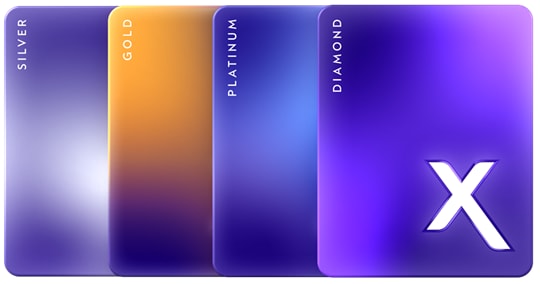Learn what factors affect your Internet speed, the difference between Mbps vs Kbps, and use our speed test to find out your speeds.
How Fast is My Internet?
If you are asking yourself, “how fast is my Internet,” "internet speeds explained," or “what are my Internet speeds,” look no further. You can determine the approximate speed of your Internet connection by taking the Speed Test from Xfinity which will generate a report on your Internet download speed and upload speed.
What is Internet Speed and How is Internet Speed Measured?
Internet speed refers to the speed which data or content travels from the World Wide Web to your home computer, tablet, or smartphone. The speed of this data is measured in megabits per second (Mbps). One megabit is equal to 1,024 kilobits. This conversion means 1.0 Mbps is more than 1,000 times faster than 1.0 kilobits per second (Kbps). High-speed Internet connection known as broadband (broad bandwidth) is defined by download speeds of at least 768 Kbps and upload speeds of at least 200 Kbps. The difference between download speeds and upload speeds can be explained in the following way: download speed refers to the rate that digital data is transferred from the Internet to your computer, while upload speed is the rate that online data is transferred from your computer to the Internet.
Broadband Internet can be provided by cable operators, telephone companies, or high-speed Internet service providers. Broadband Internet is one of the fastest Internet options available across the nation today. This specific type of high-speed Internet connection uses multiple data channels to send large quantities of information to and from Internet users. NOW by Xfinity is another low cost and reliable option.
What Factors Affect Internet Speeds?
There are a number of factors that can affect Internet speeds or your connection to the Internet. The type of Internet connection you are currently using may play a role in Internet speeds. Examples of Internet connections include 3G wireless or 4G wireless, mobile, hotspots, modem or dial-up, broadband, DSL (digital subscriber line), cable, satellite, ISDN (Integrated Services Digital Network), and more.
Sometimes, the capabilities of a website or an Internet network can affect connection speed by capping off the limit that Internet users can download, upload, or stream data. Highly-trafficked websites can cause your Internet connection to run more slowly when visiting that specific domain. If a third party network has these types of Internet speed limitations in place, you may not be able to download or upload content at top-performing Internet speeds when visiting that particular website.
Additionally, your home computer, laptop, tablet, or smartphone will need to meet the minimum system requirements advised by a high-speed Internet service provider. Internet speeds may vary based on the configuration and performance of computers, hardware, software, applications and other equipment systems. Running multiple devices off the same home network will increase the demand of your home’s Internet system and may affect download speed, upload speed, and overall Internet speeds or Internet connection.




